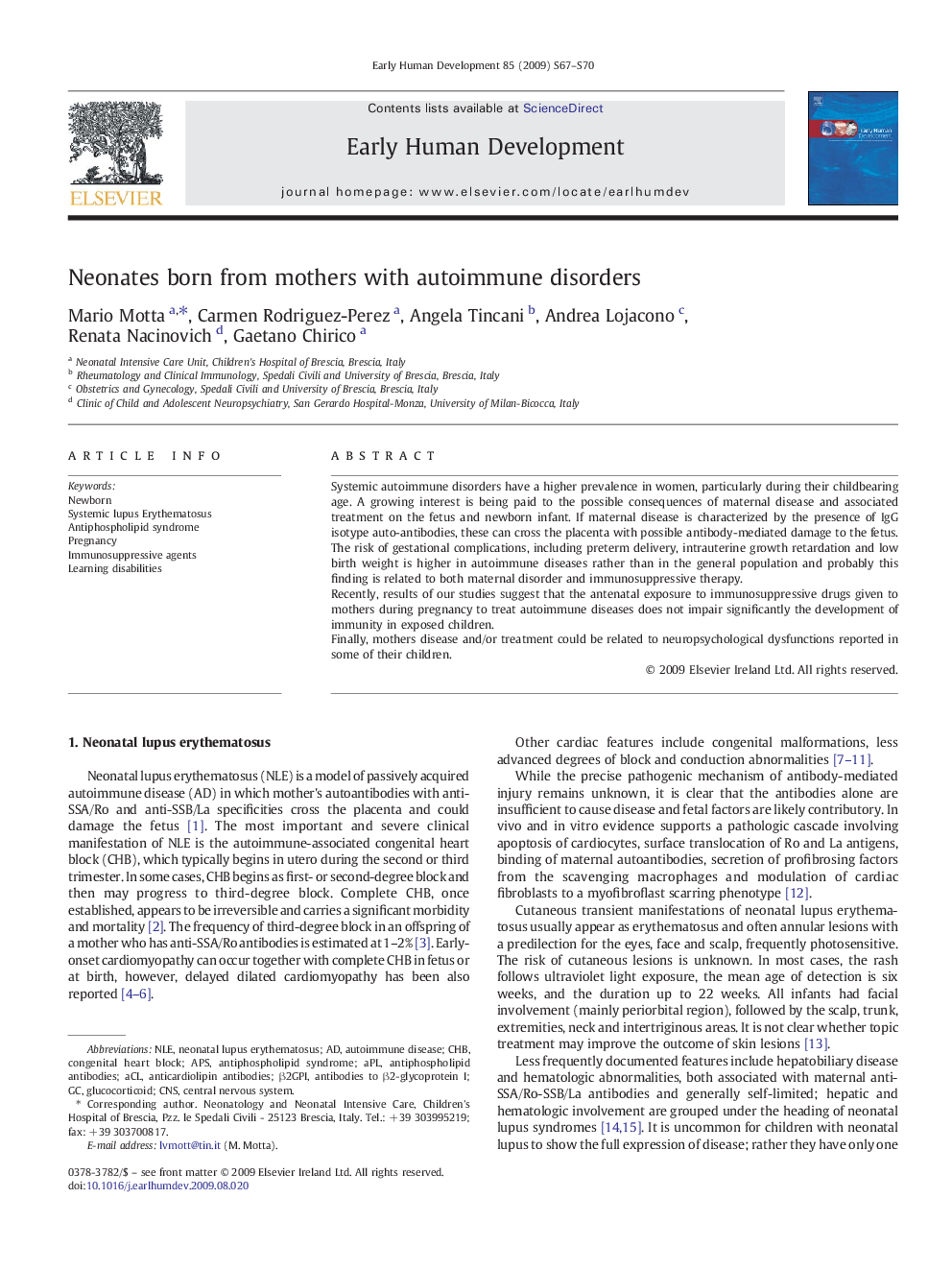| Article ID | Journal | Published Year | Pages | File Type |
|---|---|---|---|---|
| 3918503 | Early Human Development | 2009 | 4 Pages |
Systemic autoimmune disorders have a higher prevalence in women, particularly during their childbearing age. A growing interest is being paid to the possible consequences of maternal disease and associated treatment on the fetus and newborn infant. If maternal disease is characterized by the presence of IgG isotype auto-antibodies, these can cross the placenta with possible antibody-mediated damage to the fetus.The risk of gestational complications, including preterm delivery, intrauterine growth retardation and low birth weight is higher in autoimmune diseases rather than in the general population and probably this finding is related to both maternal disorder and immunosuppressive therapy.Recently, results of our studies suggest that the antenatal exposure to immunosuppressive drugs given to mothers during pregnancy to treat autoimmune diseases does not impair significantly the development of immunity in exposed children.Finally, mothers disease and/or treatment could be related to neuropsychological dysfunctions reported in some of their children.
